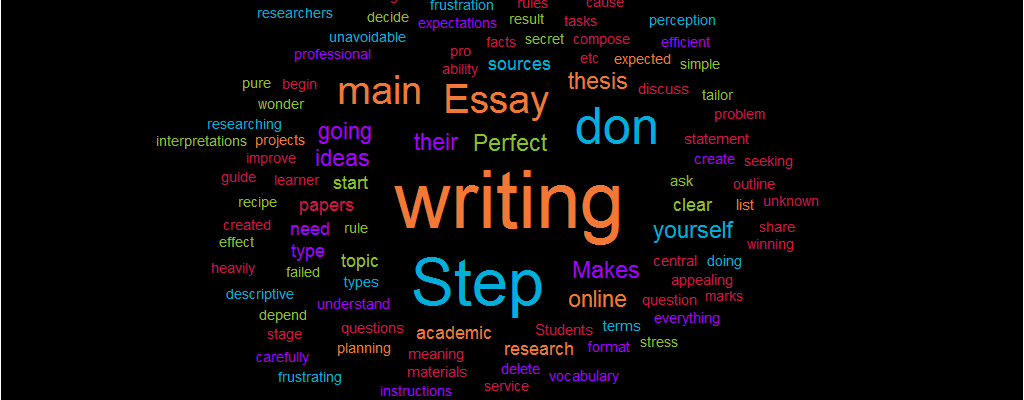What Makes an Essay Perfect
Publication Date:

The main problem with essay writing is that you are expected to compose your tasks like a pro, while you are still a learner. As a result, frustration, stress, and failed expectations become unavoidable. Students start seeking for professional essay writing service, order projects online, get their marks, and never improve their ability. At some point, you might begin to wonder if there is a secret recipe that can help you tailor winning papers. Well, there is, and we are here to share it with you. We have created a simple and efficient writing guide that will change your perception of academic writing.
Step #1: What are you going to write?
Before you start planning your paper, you need to decide what type of work you are going to do. As you know, there are different types of academic papers: cause-and-effect, persuasive, research, descriptive, etc. The format of your writing will heavily depend on the type, so be sure that you know the rules.
Also, at this stage, you need to read the instructions carefully and understand them thoroughly. If there are some unknown terms or conceptions, find out the meaning before you start researching and writing. Make the main question clear to yourself because nothing is more frustrating than missing the main point. As a rule, central questions ask for your ideas, pure facts, or interpretations of other researchers and authors. Think about the format, and this will help you choose the right direction.
Step #2: Do in-depth research
It is a rare case when you can deal with your paper without doing research. Find up-to-date materials in the library or online and get books and journals that will serve as the backbone of your writing. Make sure to find some critique and comments on the primary sources you have found. This will help you understand the ideas fully. Be careful with online sources and don’t use non-reputable sites. Usually, online academic resources have .edu, .gov, and .org in their domain.
Step #3: Come up with a topic
If you have a question given by your professor, then you can skip this step. However, if you are required to invent one yourself, then you will have to do some work. On the contrary, writing on a topic of your choice is exciting: you can pick something you are interested in! If you don’t have any ideas, find inspiration on the web.
Write down everything that seems appealing to you. Don’t overthink – you will edit this list later. When editing, delete those topics that don’t appear suitable and continue doing so until you get the last one. Just make sure that you can find enough sources and study materials on it.
Step #4: Make an outline
Some students think that an outline is just a waste of time, but it isn’t. Everything is quite the opposite: a plan is something that helps you save your time, because having a strict and clear one, you won’t get confused or stuck in the middle of your paper. Make sure to create at least a rough list of ideas. Write down the main thoughts that you are going to discuss in the body paragraphs and see if the structure is logical.
Step #5: Create a catchy thesis statement
When creating a thesis, remember that it serves to express the main idea of your paper briefly. Make it precise and clear, but also appealing. Your main aim is to explain what exactly you are going to discuss and motivate your audience to read on.
Step #6: Use the right vocabulary
Remember that some types of writing allow provocative statements and questions, some – don’t. Some papers can be written in a less formal language, while others need to demonstrate the serious voice of an expert. Make sure that you follow the task type and watch your vocabulary. Don’t try to sound smarter than you are and never use special terms if you don’t know their meaning.
Step #7: Always keep your thesis in mind
Every paragraph should be related to your central idea. Each time you are making a point, ask yourself if this supports your thesis statement. If you are not sure that it does, then you’d better delete it. Be critical to yourself, and try not to go off the topic, discussing some interesting details that are not so relevant.